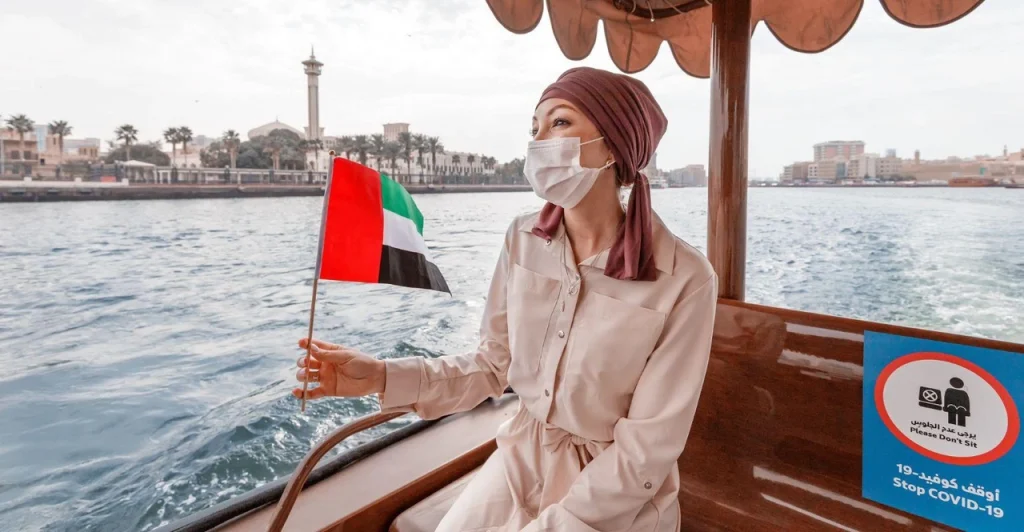Dubai’s thrill-seeking adventures come with risks, but its healthcare system rivals global standards. Whether it’s heatstroke at Global Village or a snorkeling scrape at Atlantis, tourists often wonder: Can I trust Dubai’s hospitals? Let’s decode everything from insurance quirks to hidden clinics even expats swear by.
Dubai’s Healthcare Ecosystem: Public vs. Private
Dubai divides healthcare into public (government-run) and private sectors. Tourists can use both, but private hospitals like Mediclinic City Hospital or American Hospital Dubai offer shorter wait times and multilingual staff. Public hospitals like Rashid Hospital excel in trauma care—think desert accident emergencies. Did you know? The UAE Ministry of Health mandates all hospitals to have ISO 9001 certification, ensuring standardized care.
Emergency Care: Dial 998 or Head to the Nearest ER
Dubai’s Ambulance Service (998) dispatches paramedics within 8 minutes citywide. Public hospitals can’t refuse emergency cases, even without insurance. For critical issues like heart attacks, Rashid Hospital’s ER is the gold standard. Tourists report bills starting around AED 800 for minor stitches, but costs soar for surgeries—always confirm payment options upfront.
Non-Emergency Care: Clinics, Pharmacies, and Telehealth
Walk into any Aster Pharmacy (open 24/7 in areas like Dubai Marina) for prescription meds. Clinics like HealthHub by Al Futtaim handle everything from UTIs to X-rays without appointments. During Ramadan, check adjusted hours—many clinics close by 3 PM. For virtual consults, Okadoc connects tourists with Dubai-licensed doctors via video calls, ideal for prescription renewals.
Insurance Realities: What Your Travel Policy Might Miss
While Dubai doesn’t require travel medical insurance, it’s wise to have coverage. Most policies exclude “adventure activities” like dune bashing—upgrade to a rider if planning these. Public hospitals bill upfront, so keep emergency cash or a credit card. Pro tip: Dubai Health Authority (DHA) lists insurance-accepted facilities on their website—check before visiting.
Cultural Nuances in Healthcare Settings
Dress modestly when visiting clinics—avoid sleeveless tops or shorts. Female tourists can request female doctors (common in OB-GYN and general practice). Public hospitals segregate waiting areas by gender. During consultations, direct eye contact is valued, but avoid challenging diagnoses—hierarchy matters here.
Dental Emergencies: From Toothaches to Veneer Repairs
Dubai’s dental clinics cater to medical tourists seeking affordable crowns (≈30% cheaper than Europe). For after-hours pain, Dr. Joy Dental Clinic (multiple branches) offers 24/7 service. Warning: Anesthesia might differ from Western standards—confirm ingredients if allergic.
Pediatric Care: Keeping Little Travelers Safe
Hospitals like Latifa Women and Children Hospital specialize in pediatric emergencies. Pharmacies stock EU-approved infant meds, but bring familiar fever reducers—local brands may differ. Many hotels partner with pediatricians for in-room visits, sparing you clinic trips.
Mental Health Support: Breaking the Stigma
While mental health discussions are growing, avoid public hospitals for psychiatric needs. Private centers like The LightHouse Arabia offer confidential therapy in English. Note: UAE law requires reporting cases deemed “dangerous,” so clarify confidentiality limits first.
Prescription Medications: What’s Allowed
Tourists can carry 3-month personal supplies if labeled properly. For controlled substances (ADHD meds, opioids), get a Ministry of Health approval letter pre-travel. Local pharmacies won’t fill foreign prescriptions for narcotics—visit a Dubai-licensed doctor instead.
Vaccinations and Preventive Care
No mandatory vaccines exist for Dubai, but DHA recommends hepatitis A and typhoid for desert camp visitors. Pharmacies offer yellow fever shots if arriving from endemic countries. Pre-travel PCR tests are available at Dubai International Airport clinics for ≈AED 150.
Medical Tourism: Elective Procedures with a Vacation
Dubai lures medical tourists with JCI-accredited hospitals for procedures like IVF (≈AED 25,000) or LASIK. The Dubai Health Experience (DXH) program bundles treatments with hotel stays. Research surgeons on the DHA’s “Verify Your Doctor” portal to avoid unlicensed practitioners.
www.few.ae Editor’s Pro Tip
“Always carry a copy of your passport and visa during hospital visits—admins need it for paperwork. Snap a photo on your phone as backup.”
Navigating Language Barriers
Most healthcare staff speak English, but medical terms can confuse. Use phrases like “I need a translator” to request help. Apps like Microsoft Translator work offline for Arabic medical forms. For complex issues, clinics in Deira and Bur Dubai often have Hindi/Urdu speakers.

Women’s Health: From Contraceptives to Prenatal Care
Birth control pills are available over-the-counter, but emergency contraception requires a prescription. Prenatal scans at Fetal Medicine Centre Dubai include 4D imaging. Note: Abortion is illegal except to save the mother’s life—plan accordingly.
Alternative Medicine: Acupuncture, Ayurveda, and More
Dubai’s Traditional, Complementary, and Alternative Medicine (TCAM) licenses cover practices like cupping. Centers like Kaya Skin Clinic blend Ayurveda with dermatology. Verify TCAM licenses on the DHA website—fake “healers” occasionally scam tourists.
COVID-19 Era Changes
Dubai still tests arrivals from high-risk countries (check DHA’s COVID-19 page). Quarantine is home-based unless symptoms worsen. Public vaccination centers offer boosters to tourists for free with passport and visa.
Health Risks Unique to Dubai
- Dehydration: Summer temps hit 50°C—drink 1L water hourly outdoors.
- Marine Stings: Jellyfish in the Gulf? Vinegar stations dot public beaches.
- Sandstorms: Asthma sufferers, carry inhalers—PM2.5 levels can spike 300%.
Your Medical Packing Checklist
- Copies of prescriptions (translated to English if needed).
- Generic antibiotics for traveler’s diarrhea (ask your doctor).
- Rehydration salts—sweating drains electrolytes fast.
- Sunscreen SPF 50+ (local brands often have whitening agents).
- A list of Dubai hospitals near your accommodation.
When Things Go Wrong: Filing Complaints
Unhappy with care? Submit a grievance via the DHA’s “Hayat” app within 30 days. The Dubai Healthcare City Regulatory (DHCR) investigates private facilities. Keep all bills and notes—compensation cases require evidence.
The Bottom Line: Dubai’s Healthcare Welcomes Tourists
With cutting-edge facilities and stringent regulations, Dubai ranks 22nd globally for healthcare access. While costs can surprise, preparation prevents nightmares. Pack common meds, know your insurance fine print, and bookmark the DHA website. Now, go conquer those dunes—your safety net is sturdier than you think.


 then "Add to Home Screen"
then "Add to Home Screen"